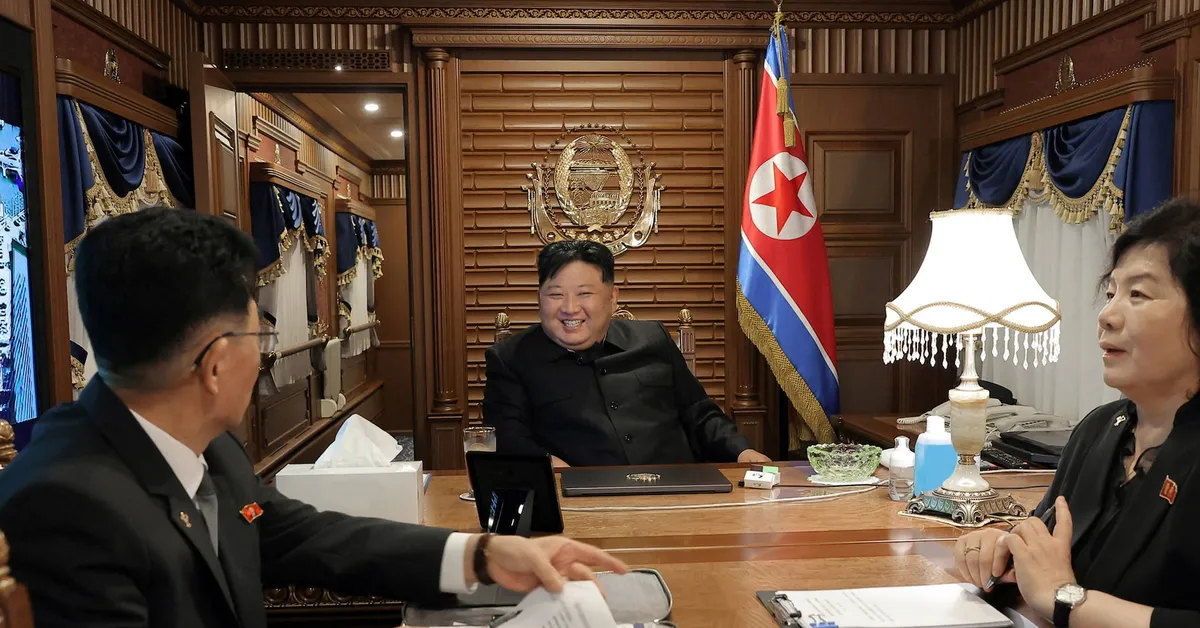
On September 2, 2023, North Korean leader Kim Jong Un made a significant diplomatic move by crossing the border into China aboard his special train. This journey marks his attendance at China's celebration commemorating the formal surrender of Japan during World War II. According to North Korean state media, Kim's departure from Pyongyang occurred on Monday, and he entered China early Tuesday morning, as reported by the state newspaper Rodong Sinmun.
Kim Jong Un is set to participate in the largest multilateral diplomatic event of his career, the military parade in Beijing, scheduled for Wednesday. He will join notable leaders including Chinese President Xi Jinping, Russian President Vladimir Putin, and Iranian President Masoud Pezeshkian. The significance of this gathering lies not only in its scale but also in the potential diplomatic ramifications it holds for North Korea's international relations.
State media released several photographs capturing Kim's journey, featuring him alongside his entourage, which includes Foreign Minister Choe Son Hui. Choe has played a crucial role in Pyongyang's diplomatic efforts regarding weapons development for over twenty years. One striking image shows Kim next to his dark green train, cigarette in hand, while another depicts him seated at a desk within the ornately decorated train carriage, complete with a North Korean flag and a closed laptop.
Prior to his entry into China, Kim visited a missile laboratory on Monday. This facility is researching carbon fibre composite materials intended for use in engines for intercontinental ballistic missiles. Analysts have noted that this visit carries symbolic weight, suggesting North Korea's intent to showcase its status as a nuclear power just before standing alongside Xi and Putin. Hong Min, a North Korea analyst at the Korea Institute for National Unification, highlighted that this trip signals North Korea's commitment to advancing its nuclear capabilities and reinforces its position as a nuclear state.
North Korea expressed support for remarks made by Xi Jinping regarding the need for fairer global governance. A vice foreign minister stated that cooperation between North Korea and China would increase in pursuit of this shared value, as noted on the North Korean foreign ministry's website. Xi, during a recent summit that included leaders from Russia and India, emphasized his vision for a new global security and economic order that prioritizes the Global South, positioning it as a challenge to U.S. influence.
Meanwhile, South Korean President Lee Jae Myung, who has been looking to improve relations with Pyongyang, was reportedly receiving real-time updates about Kim’s trip to China. In a diplomatic gesture, South Korea is sending National Assembly Speaker Woo Won-shik to Beijing; however, the country's Unification Ministry has stated uncertainty regarding the possibility of bilateral talks between Woo and the North Korean leader on the sidelines of the event.
This diplomatic engagement highlights the evolving dynamics in Northeast Asia, with implications for regional security and international relations as major powers navigate their positions amidst shifting global alliances.